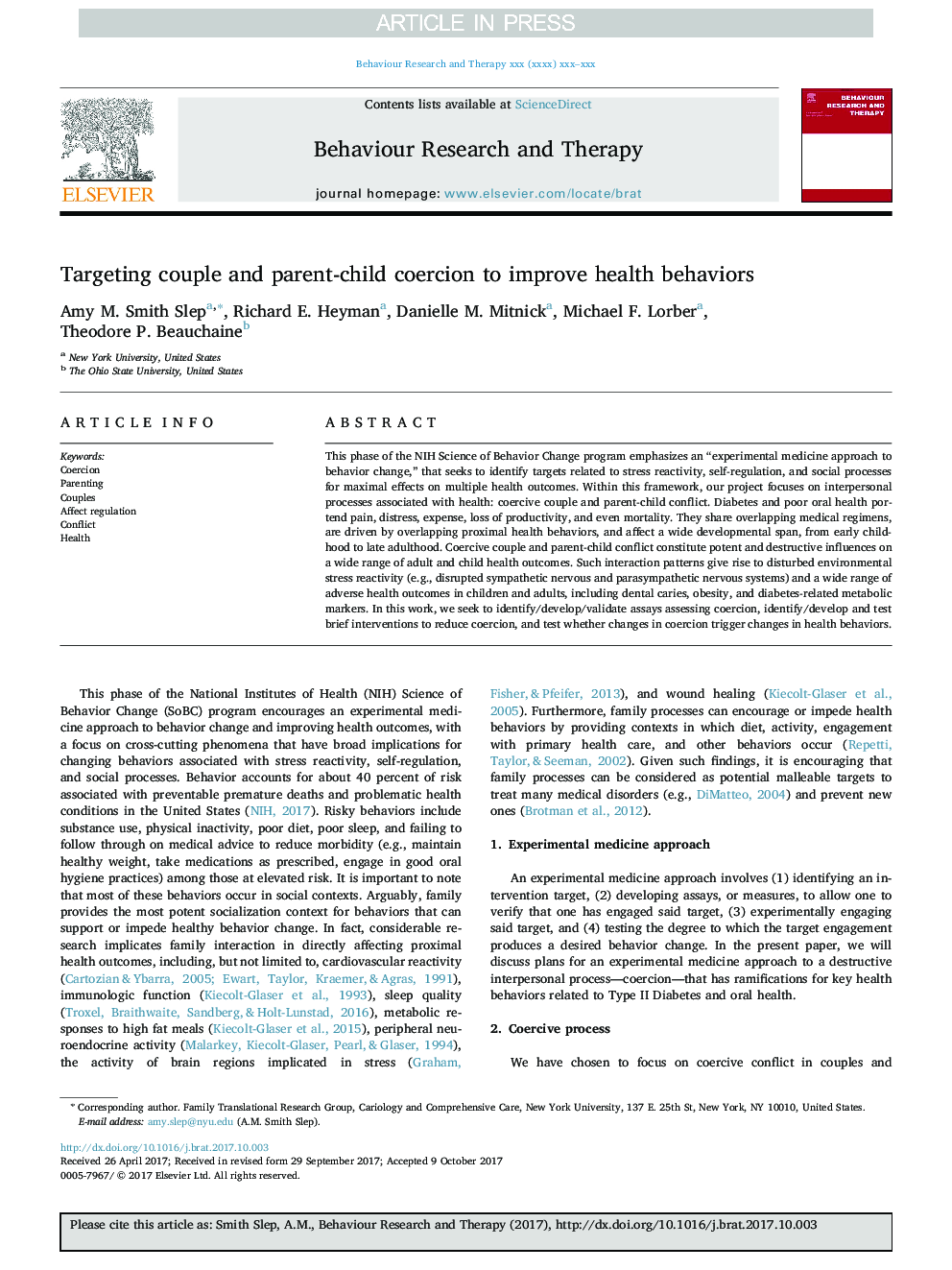| Article ID | Journal | Published Year | Pages | File Type |
|---|---|---|---|---|
| 7261914 | Behaviour Research and Therapy | 2018 | 10 Pages |
Abstract
This phase of the NIH Science of Behavior Change program emphasizes an “experimental medicine approach to behavior change,” that seeks to identify targets related to stress reactivity, self-regulation, and social processes for maximal effects on multiple health outcomes. Within this framework, our project focuses on interpersonal processes associated with health: coercive couple and parent-child conflict. Diabetes and poor oral health portend pain, distress, expense, loss of productivity, and even mortality. They share overlapping medical regimens, are driven by overlapping proximal health behaviors, and affect a wide developmental span, from early childhood to late adulthood. Coercive couple and parent-child conflict constitute potent and destructive influences on a wide range of adult and child health outcomes. Such interaction patterns give rise to disturbed environmental stress reactivity (e.g., disrupted sympathetic nervous and parasympathetic nervous systems) and a wide range of adverse health outcomes in children and adults, including dental caries, obesity, and diabetes-related metabolic markers. In this work, we seek to identify/develop/validate assays assessing coercion, identify/develop and test brief interventions to reduce coercion, and test whether changes in coercion trigger changes in health behaviors.
Related Topics
Health Sciences
Medicine and Dentistry
Psychiatry and Mental Health
Authors
Amy M. Smith Slep, Richard E. Heyman, Danielle M. Mitnick, Michael F. Lorber, Theodore P. Beauchaine,
